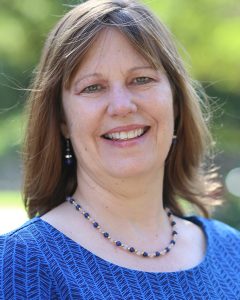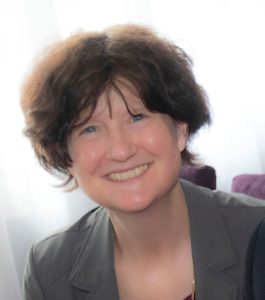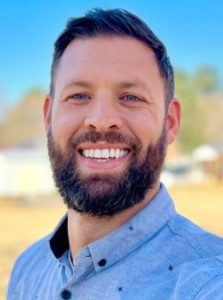The Baptist Scholars International Roundtable took on a typically hefty theme during its August meeting in Oxford, England.
“The subject we explored this time was what and how seminaries should be teaching future church leaders,” said roundtable co-director and fellow and Baylor University social work professor T. Laine Scales.
But there was another, arguably wider effort to continue building a global network of scholars interested in researching and writing about all things Baptist.

Laine Scales
“It’s a process of trying to keep alive the idea of Baptist scholarship and to make sure new scholars are studying our tradition, its history and future,” Scales said.
While last year’s meeting was held virtually, the Aug. 7-10, 2022, international conference resumed in person in the United Kingdom.
“People are meeting other scholars interested in Baptists around the world,” Scales explained. “We worship together and have a lot of fellowship around table. We are trying to build friendships.”
That process begins with an annual call for papers on a given topic that overlaps Baptist life. Submitted drafts are narrowed down and then presented in Oxford, where senior academics offer critiques and suggested revisions for eventual publication.
“Some of the authors, who we call scholars, are fairly new in their careers and we have senior people, who we call fellows, who have been publishing for quite a while, mentoring the scholars through the process of developing their papers,” Scales said.
This year’s papers are slated for publication in the journal Perspectives in Religious Studies, which is based at Baylor, while the projects from 2019 and 2021 will be presented in book form by Baylor University Press.
“This year we had three papers, all from different parts of the world, addressing curriculum reforms for pastoral preparation,” Scales said. “In those three, they weren’t rocking the boat, but presenting incremental changes. As a group, it is definitely a call for change to better prepare ministers for the 21st century world.”

Keith Mitchell
Scholar Keith Mitchell argued that modern pastors face such unique and complex emotional challenges in ministry that educational institutions that train them must do more to include emotional health as a core topic.
“It’s no longer enough to train pastors to preach and teach without also equipping them with the tools needed to develop and sharpen emotional intelligence,” said Mitchell, a senior lecturer in pastoral and practical studies at Morling College in Australia. His paper was titled “Turning the Tables on Pastoral Formation Training for Developing Sustainability and Effectiveness in Pastoral Leadership Today.”
Concentrating on Bible and theology “in the initial formation of pastoral leadership to the detriment of emotionality is inadequate for pastoral leadership today, especially regarding resilience, sustainability and effectiveness,” Mitchell said.

Sally Nelson
In “Is Theology Taught or Caught? Formation in Multilogical Space,” scholar Sally Nelson argued that new research into learning styles should be used to create educational environments favorable to ministry — instead of simply delivering content.
“This means a formational community, but not one that is embedded solely in the college,” according to Nelson, professor and dean of Baptist formation at St. Hild College in Yorkshire, UK.
That formational space, which Nelson termed a “multilogue,” is to be found “between college, Baptist tradition, wider culture and others in formation. … In practice this multilogue means re-centering formation with respect to (not abandoning) the colleges, so that theology is caught in the lived exploration of the gospel story within culture, and not taught through class and assignment alone.”

Kevin Wilhite
In an essay titled, “Forming Community in a Digital Age,” University of Georgia doctoral student Kevin Wilhite contends that the enduring use of online theological learning should prompt institutions to provide avenues of accessibility, intimacy and accountability to ensure relationships can be built and maintained in the virtual settings.
“While recognizing the benefits of digital learning in higher education, it is critical that attention is also given to the need for relationship in learning,” he said. “This does not mean abandoning pursuits of digital education, but providing opportunities for digital education to also be relational.”
In addition to hitting the mark with their draft papers, these scholars also represented the professional and interpersonal network the Baptist Scholars International Roundtable is fostering, Scales said. “We are seeing and hearing those connections and friendships. Here you have an Australian who meets someone from the UK and the U.S. They connect through dialogue. In the future, they may read each other’s papers or co-author papers and submit them to journals for publication.”
Scales also recalled two Australian Baptist scholars who connected through the program. “Australia has a small population of Baptists, and we had these two young women midway through their doctoral work. They met each other for the first time in Oxford and now they can stay connected when they return home.”
But the benefits reach beyond friendship to inspiration to continue studying Baptist topics, she said. “To know there is someone out there doing this their whole career, that they’re not the only ones thinking about the Baptists, is significant.”
The call for 2023 papers — on Baptists and global missions — will be issued in October, Scales said. “We don’t require participants to be members of Baptist churches. We just ask that they be interested in studying Baptists.”
Related article:
Baptist Scholars International Roundtable finds serendipity in participants’ experiences


